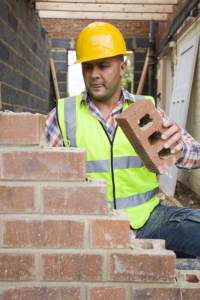A well-maintained roof will protect your home and can save you money on energy bills and home insurance premiums. It also increases the value of your home.

Roofing services include a range of activities, from repairing leaks and missing shingles to replacing the entire roof. They can also help you select the best type of roof for your house, based on its climate and age.
Shingles and tiles are highly durable and designed to withstand a lot of wear and tear. But high winds, hail and falling debris can damage them, or cause them to come loose. This type of roof damage is easily repaired, and it’s often a much cheaper option than replacing the entire roof. A roofing contractor will assess the damage, then inspect and repair the affected areas.
This will include removing and discarding the damaged shingles, cleaning off moss, algae or lichen, and basic repairing. In some cases, the roofing contractor may choose to use a more permanent solution, such as installing new flashing or vents. This can help prevent further problems down the line, and may even save you money on your energy bills.
Leaking roofs are a major source of water damage in homes and businesses. Roofing services can repair leaks and replace damaged shingles, as well as seal the edges of the roof to prevent water from seeping in. They can also install gutters and other exterior home accessories, such as window shutters or screens.
Another common service that roofing companies offer is insulation installation. This can make your home or business more comfortable and energy efficient, as well as increase its resale value. Roofing contractors will help you decide which type of insulation is best for your property, and they’ll also install it properly.
If you have a leaking roof, it’s important to call in the experts as soon as possible. If you don’t, the damage could worsen over time, leading to expensive repair or replacement costs. Moreover, the longer you wait to fix the problem, the more likely it is that the problem will spread to other parts of your building or home. In addition, a leaking roof can lead to structural damage and mold or mildew. A reputable roofing company will take the necessary steps to repair or replace your roof as quickly as possible. They’ll also ensure that the job is done correctly and in compliance with any local codes or aesthetic requirements. They’ll even provide a warranty on their work, giving you peace of mind.
Roof Replacement
Roofing services can help property owners decide whether to make repairs or go with a full roof replacement. They can also assist with the insurance claim process if necessary. They can even offer financing options for larger projects. This is a great option for homeowners who want to improve the curb appeal of their homes and attract potential buyers. A well-maintained roof can also increase the value of a home and make it more attractive to tenants.
During the re-roofing process, roofers remove the old roof and install new materials. This might include installing a new felt or moisture barrier, adding new shingles, and replacing any damaged or decayed decking or other structural components of the roof.
Re-roofing is usually a good choice when the existing roof has significant damage or is at the end of its lifespan. However, it’s important to note that re-roofing can be expensive, and that the underlying structure of the roof must be in good condition.
It is a good idea to choose a roofing contractor with a permanent business location, as this indicates that they are a legitimate company and will be around to honor their warranties and support their work. A reputable roofing contractor should also have positive reviews and referrals from previous clients. Additionally, the company should be licensed and insured.
A roofing company should be able to explain the benefits of each material and provide an estimate for the project before starting work. The estimate should also include any additional costs, such as permits and inspections. Lastly, the roofing contractor should be able to explain the warranty terms and conditions.
If you’re in need of a new roof, contact VIS Exterior for a free inspection. We’ll give you an honest assessment of your roof and let you know if re-roofing or a complete replacement is in order. We can also help you select the best material for your budget and lifestyle. If you’re interested in energy-efficient upgrades, we can help with those as well. We have a wide range of insulation options available for any type of roof.
Roof Maintenance
Roofs protect structures from rain, snow, sunlight, and other elements. Without them, buildings would be vulnerable to leaks and structural damage. Roofing services install, repair, and maintain roofs to keep them in good condition. These professionals have the skills and knowledge to choose and install appropriate roofing materials, ensuring that roofs are durable, watertight, and properly insulated. They also work with other construction professionals to integrate roofing tasks with other aspects of a building project.
Roofers can offer both emergency and preventative repair services. Emergency repairs address urgent problems, such as a collapsed or damaged roof. Preventative repairs help extend the lifespan of a roof by identifying and fixing potential issues before they become serious. Typical preventative maintenance tasks include inspection, cleaning, and removal of organic debris. Roofers may also provide ice dam protection and caulking services to keep water from seeping through cracks in the roof.
Roofing contractors can also install insulation to improve the energy efficiency of homes. They can recommend the best types of insulation for a particular climate and roof type, and they have the necessary equipment to install it correctly. This makes it easier for homeowners to lower their energy bills while protecting their homes from the harmful effects of UV rays.
In addition to installing and repairing roofs, roofing contractors can also provide gutter and leader system installation and repair. This is important because a poorly functioning gutter system can cause damage to the roof and lead to leaks. In addition, it is important to have a clean gutter system in order to prevent water from pooling on the roof and creating rot or mold.
Roofing services can also clean the gutters of organic debris, such as leaves and branches, and they can remove moss from the roof surface. This is important because a buildup of these materials can cause moisture problems, and it can be difficult or even impossible to remove them without proper training and safety precautions.
Insulation
Insulation services provide a vital service to help make homes and buildings more comfortable, lower energy costs and lessen the impact on the environment. They also provide soundproofing benefits. Proper insulation helps to prevent drafts, high heating and cooling bills, and keeps water from entering a building and causing mold or rot. Insulation can be added to existing walls, floors, ceilings and roofs or installed as part of a new construction project. Choosing the right type of insulation and having it installed correctly is key to getting the most benefit from it.
Different types of insulation are available, each with a specific R-value (the thermal resistance it offers). These range from bulky fiber materials such as fiberglass, cellulose and mineral wool to rigid foam boards and sleek foils. Bulk insulation materials trap pockets of air in their cells to resist conductive heat flow; for example, fiberglass batts are most common. Foils and reflective insulation systems reflect radiant heat away from living spaces, making them effective in warm climates. Rigid foam insulation products such as XPS, PUR or polyurethane are sometimes used in walls and ceilings, where their high R-values are most appreciated.
Spray foam insulation, made from liquid latex or polyurethane, is sprayed onto wall and ceiling cavities, filling gaps and crevices for a snug fit. It’s particularly good at insulating hard-to-reach areas and can be applied to ductwork or around wiring. It is also a popular choice for insulating the underside of floor joists in new construction.
When installing new insulation, be sure to follow the manufacturer’s instructions for applying it. Failure to do so may result in reduced R-values or even damage the product.
Insulation can be built into walls to create very high R-values and make the home more energy efficient. It can be blown into place using special equipment or, in some cases, poured. Insulation made from SIPs (structural insulated panels) is a highly effective option for a variety of applications. It’s a great choice for additions and renovations to older homes, and it’s also ideal for new construction in colder climates.








